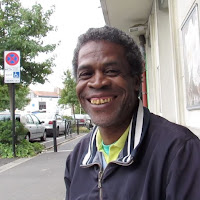I arrived in Paris - this trip - on September 8, 2021. I returned to a very different, yet familiar home. France did not escape the ravages of COVID. They too suffered the economic decline in tourism and jobs. But the Joie de Vivre is still here. The City I love is still here.
All my life I've loved this City. As a child I dreamed of what it must be like to live here. I took my first trip here when I was 39. It was everything I dreamed and more than I could ever know on that first journey.
I've rented apartments long-term in Paris for 20 years. My first was in 2001, when I rented a charming studio in the 6th arrondissement, just steps from the Seine at Pont Neuf with the Louvre on the opposite bank and an incredible view of the Eiffel Tower as you cross. It was my first stop after dropping my bags.
But, reality was life and work were in San Francisco, and my visits were just that, visits. I racked up a LOT of airline miles.
Then Schengen came into being. Without explanation into its place in European governance, suffice it to say it put a big crimp in my travel. Well, Schengen and work. With the Schengen you can only spend 90 days out of every 180 days in its member countries. I was spending 90 in the summer, and 60 days at Christmas, and 30 days in March for my Birthday. Under Schengen that was off the table. UNLESS you had a Visa. So I got mine!
A dear friend, represented me in finding an apartment and signing the lease. Not only did she secure a place on one of my favorite streets in Paris, she found me a wonderful apartment, with really nice neighbors, and the sweetest Guardienne. I asked the Guardienne, where are the mailboxes, and do I have a mailbox key, and she looked at me with confusion. I thought it may have been my awful French, but in fact, there are no mailboxes! The mail is delivered to her which she sorts then delivers to our door! She also receives all deliveries and brings them to our door. She is charming and sweet and energetic and we have the funniest conversations trying to understand one another.
My next door neighbors met me in the hall and introduced themselves, the wife speaks French and Italian. The husband speaks French, Spanish, and a bit of English. I have made it clear to everyone I meet, I am determined to learn French, so whenever I see them, they speak slowly in French, with a little sign language thrown in when necessary.
My neighborhood is incredible! Almost like a dial you can turn to decide what type of "vibe" you want. My block is quiet, but turn left and you have a lively Place of cafe's and stores, turn it right you have the history of Ecole Militaire, the Champs De Mars and the Queen of Paris - The Eiffel Tower.
Next month I will be back in San Francisco. Happy to see and hug my wonderful friends and family I have there, but aching to get back home to Paris!






























